Along with improving the quality of education, taking care of boarding meals is being focused on by educational institutions in Hai Duong, helping students develop both intellectually and physically.
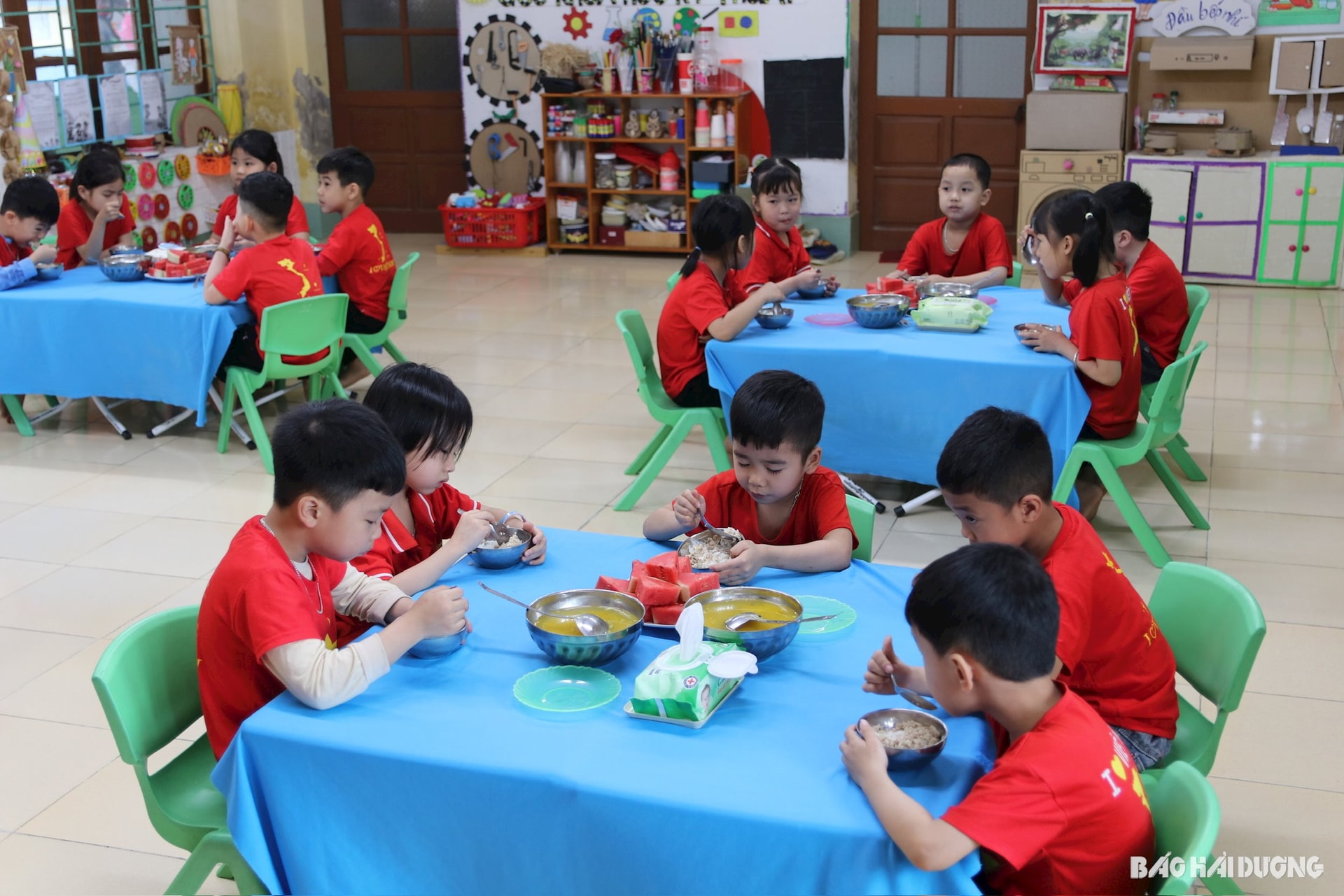
Kien Quoc Kindergarten in Kien Phuc commune is evaluated by the Department of Education and Training of Ninh Giang district as a typical educational institution in organizing boarding meals in the area. Since 2012, when the school was concentrated in one location, the boarding meals at the school have become more organized and disciplined. This school year, the school has 346 children in the nursery and kindergarten groups, all of whom eat boarding meals.
Teacher Tran Thi Yen, Principal of Kien Quoc Kindergarten said: “The school determines that raising and educating children are equally important. Even at preschool age, nutrition has a great influence on children's development. Therefore, the school pays great attention to the children's meals.”
Currently, the school kitchen is managed by 3 staff members, from receiving food, preparing, processing, dividing, preserving, and transporting food. These 3 staff members are all of working age, have cooking certificates, and are in good health. 28 teachers are assigned to manage 14 lunch classes. The school also assigns a vice principal to manage the organization of boarding meals. The meal menu changes daily, suitable for each age group.
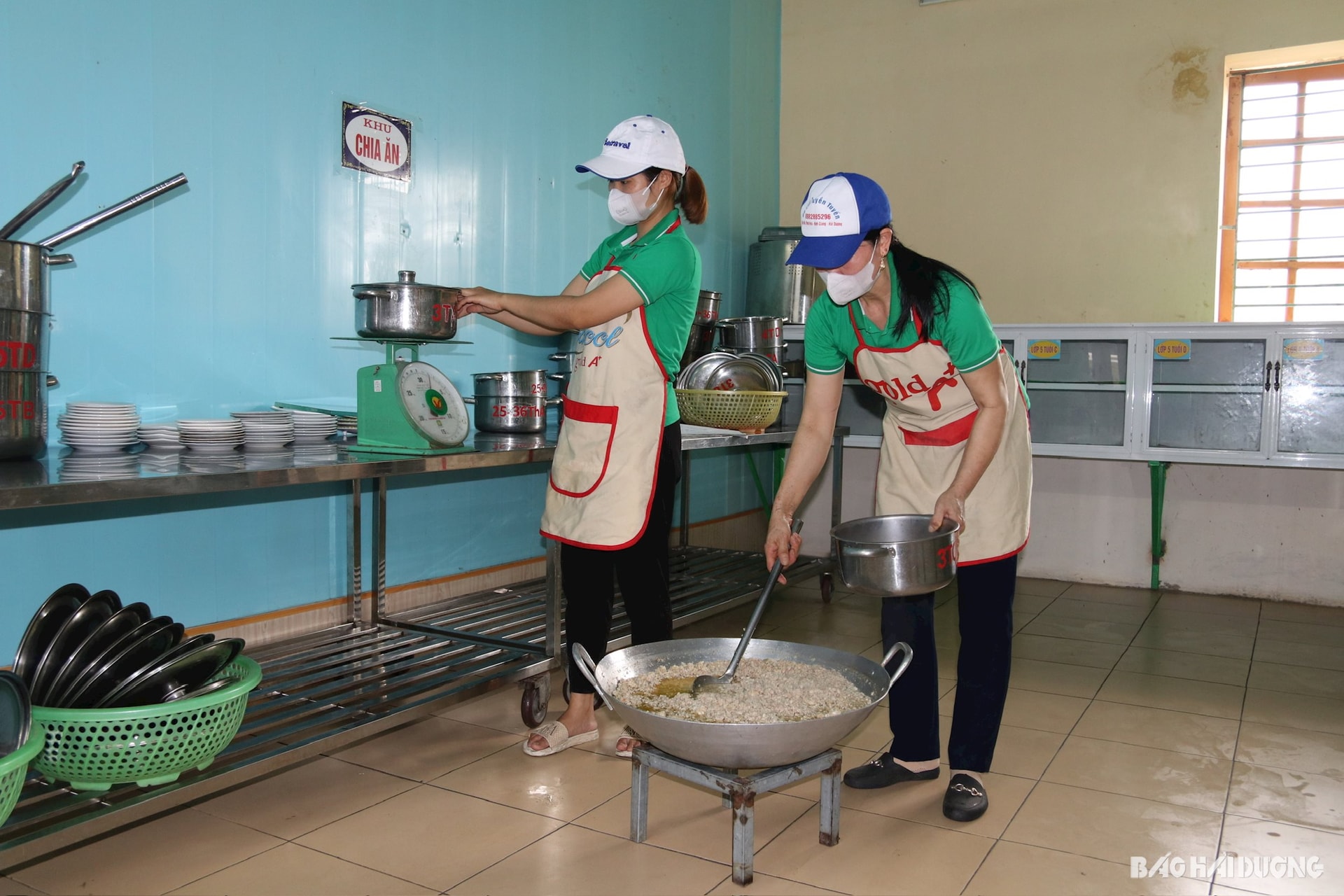
At Tu Cuong Primary School (Thanh Mien), in addition to complying with food safety regulations, boarding meals are also supervised by medical staff and parents. The school has more than 900 students, of which nearly 600 students eat boarding meals in 5 grades. Because of the different ages, the school uses software to quantify meals. In addition, ingredients for preparing dishes are also balanced based on the actual situation, prioritizing seasonal foods. Food suppliers are selected publicly and have specific, clear conditions regarding food safety and hygiene. Cooking utensils and tools must also be clean and hygienic.
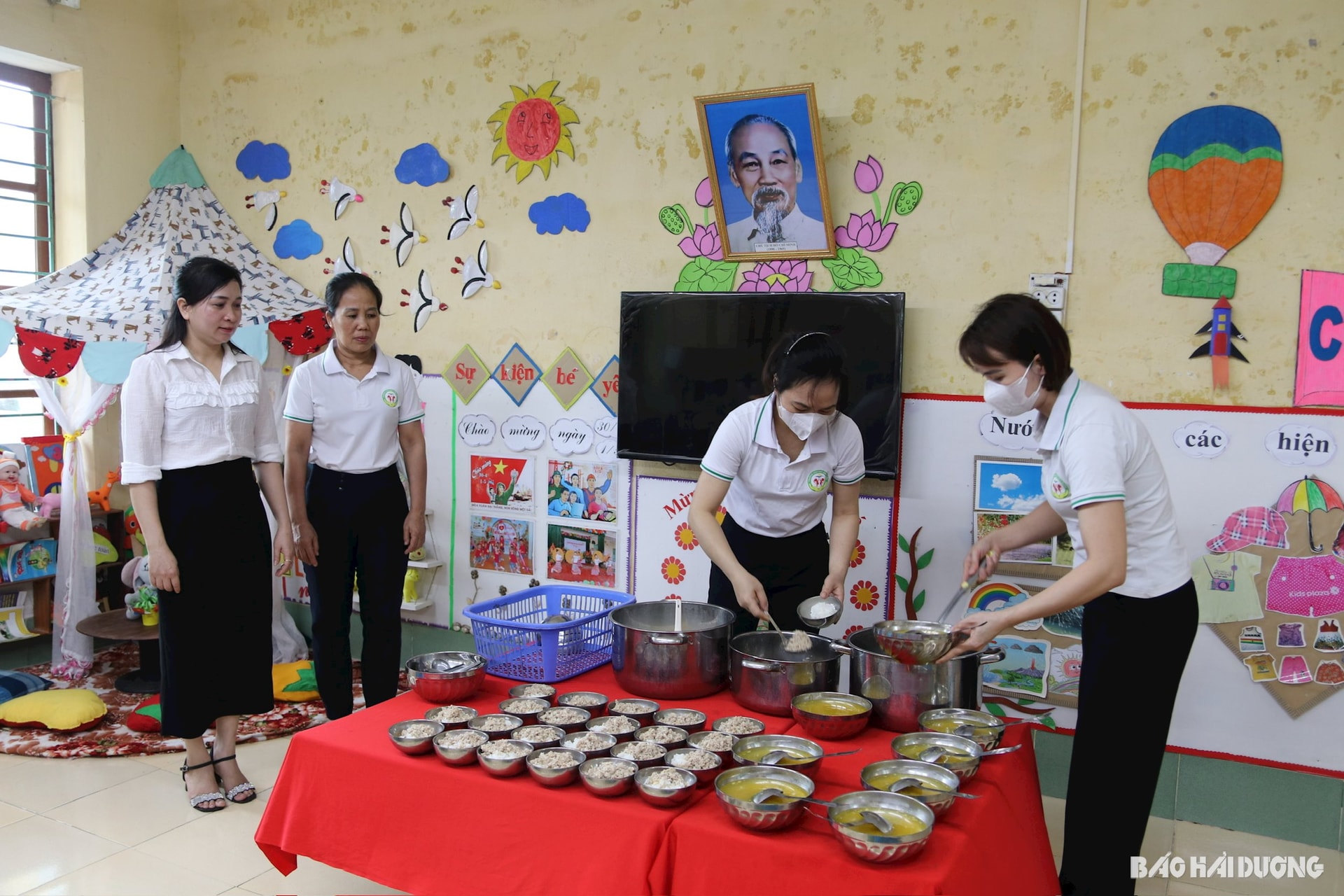
According to the school representative, to ensure the safety and quality of the boarding meals, the school always strictly controls the source of raw materials, complies with the 3-step food inspection process and stores food samples. The preparation and processing are carried out according to the one-way principle. Medical staff will regularly monitor the boarding meals, and parents can come to check the actual situation at any time if needed. On that basis, the school will evaluate the boarding meal situation to make appropriate adjustments.
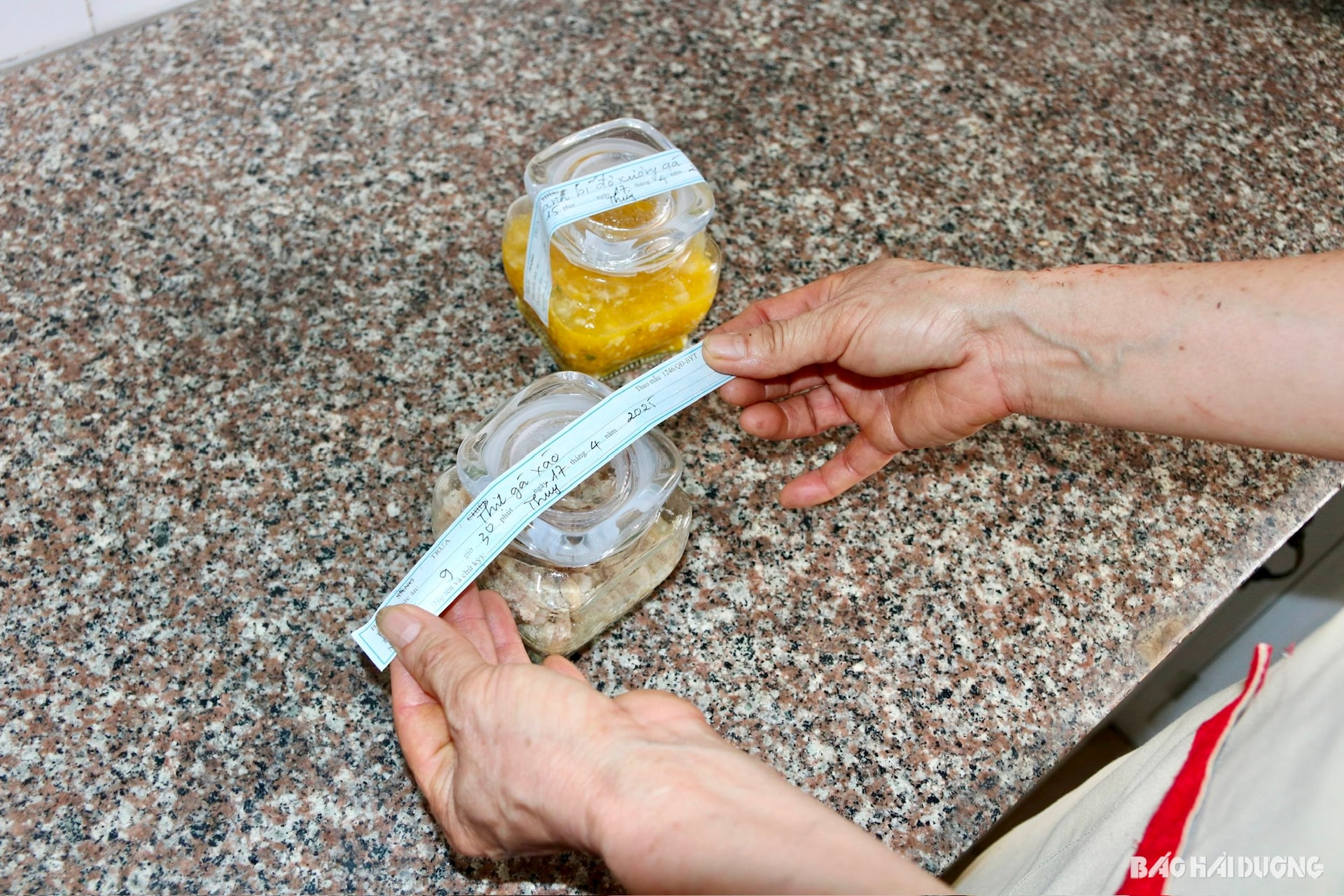
Compared to other collective kitchens, organizing meals at schools is more specific when the target audience is children and students. This is the age group that must ensure adequate nutrition and absolute safety for children to develop comprehensively and healthily. At the same time, through meals at schools, it is possible to create a connection between teachers and students, schools and parents, and train children in necessary life skills. Therefore, organizing meals at schools must be strict and close to create peace of mind and trust.
Ms. Nguyen Thi Chi in Thanh Binh Ward (Hai Duong City) has 2 children who eat at school, so she is very concerned about the quality of her children's meals. Ms. Chi believes that although the school pays a lot of attention to the meals, the risk of food safety is difficult to predict because the quality of food and drinks depends on many external factors. "Children need a full range of nutrients to develop, but they are also very sensitive to food and have different eating preferences. Therefore, I hope that schools will closely monitor the kitchen to avoid unwanted incidents," Ms. Chi stated her opinion.
In fact, in Hai Duong, there have been scandals related to the organization of meals at boarding schools. In some places, parents have complained about the quality of meals. Recently, schools have better controlled the organization of meals at boarding schools, but we cannot be subjective or negligent.
According to the representative of the Food Safety and Hygiene Department (Department of Health), because there are certain differences in the student canteens, the management agency pays special attention and closely monitors the inspection. Recently, localities have proactively established interdisciplinary inspection teams to conduct periodic and surprise inspections to make objective assessments, determined not to let poor quality food infiltrate the canteens as well as to prevent irresponsibility that affects the health of students.
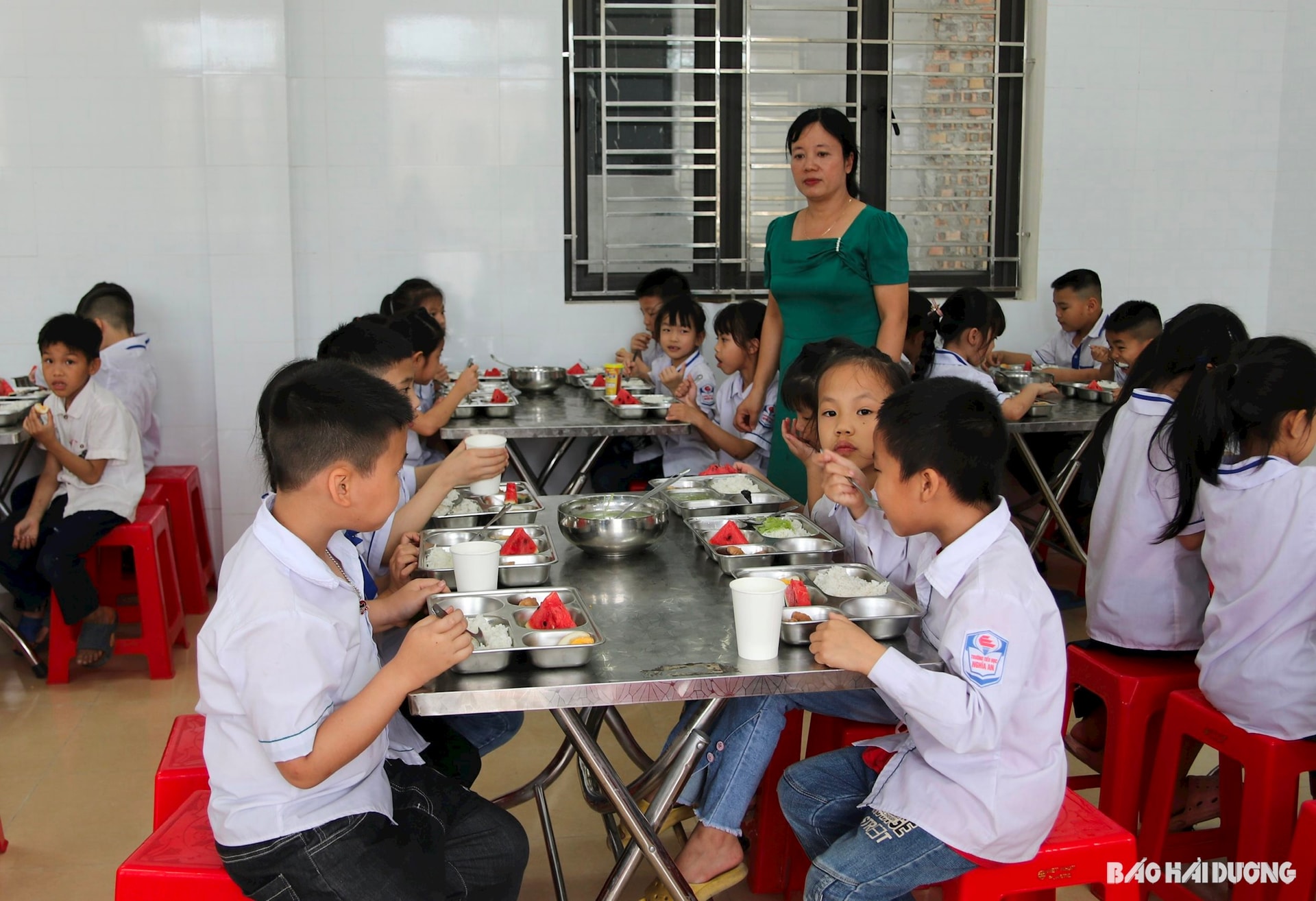
The province currently has 289 kindergartens and 245 primary schools, all of which basically provide boarding meals. Implementing the direction of the Provincial People's Committee, every year the Department of Education and Training includes the content of organizing nutritious meals and ensuring food safety as one of the key tasks in implementing the school year's tasks. The prompt and timely participation in managing boarding meals will create conditions for children and students to be nourished, cared for, and educated comprehensively.
NGUYEN MO